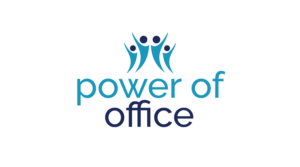Healthcare professionals are under constant pressure to provide high-quality patient care while managing extensive administrative tasks. One of the most time-consuming aspects of medical work is documentation—typing up consultation notes, preparing reports, and ensuring that patient records are accurate and compliant. Professional medical transcription services offer an effective solution to reduce staff workload, improve efficiency, and maintain high standards of accuracy.
1. Freeing Up Clinicians’ Time
Doctors, nurses, and specialists often spend hours each day documenting patient interactions. This administrative burden can lead to fatigue, reduced focus, and less time spent directly with patients.
By outsourcing transcription to professional services, clinicians can focus on their core responsibilities. Transcriptionists handle the conversion of audio recordings into accurate, formatted reports, ensuring that documentation is completed quickly and efficiently. This allows medical staff to devote more time to patient care, consultations, and treatment planning.
2. Reducing Administrative Burden for Support Staff
In addition to clinicians, administrative staff are often tasked with managing medical records, inputting data, and formatting reports. These duties can be time-intensive, leaving less time for essential office management tasks.
Professional transcription services take on the bulk of documentation work, reducing pressure on administrative teams. Staff can then focus on scheduling, patient communication, and other tasks that directly contribute to the smooth operation of a clinic or hospital.
3. Ensuring Accuracy and Compliance
Professional transcriptionists are trained in medical terminology, coding standards, and compliance requirements such as HIPAA and GDPR. Outsourcing ensures that records are accurate, properly formatted, and legally compliant.
This reduces the risk of errors that could require rework by staff or lead to costly compliance issues. Accurate transcription also supports efficient billing, insurance claims, and audits, relieving staff from additional administrative work related to correcting mistakes.
4. Faster Turnaround Times
Medical transcription services often provide rapid turnaround times, ensuring that reports and records are ready when needed. Quick access to accurate documentation allows staff to process patient information, referrals, and test results more efficiently.
Faster report delivery reduces bottlenecks, improves workflow, and prevents staff from being tied up with urgent typing tasks. This efficiency is particularly valuable in busy hospitals, multi-specialty clinics, and emergency care settings.
5. Flexible Support During Peak Periods
Healthcare facilities experience fluctuations in workload due to seasonal illnesses, staff shortages, or high patient volumes. Professional transcription services provide flexible support, scaling resources to meet demand.
This ensures that documentation continues uninterrupted, even during peak periods, without overburdening existing staff. Temporary spikes in workload no longer result in overtime, delays, or staff burnout.
6. Cost-Effective Resource Management
Outsourcing transcription can be more cost-effective than hiring additional in-house staff. Healthcare facilities pay for completed work rather than fixed salaries, benefits, and training costs. This allows organisations to manage staffing budgets efficiently while still maintaining high-quality documentation.
By reducing internal workload, transcription services help maximise the productivity of existing staff without increasing headcount, ultimately saving money and improving operational efficiency.
Final Thoughts
Professional medical transcription services are an invaluable tool for reducing staff workload in healthcare settings. By outsourcing documentation, clinics and hospitals can free up clinicians’ time, reduce administrative pressures, ensure accuracy and compliance, and improve overall workflow.
The result is a more efficient, productive, and focused workforce, allowing healthcare professionals to prioritise patient care while maintaining high standards of recordkeeping. Investing in professional transcription services is not just about convenience—it’s a strategic approach to optimising staff resources and improving operational efficiency.

